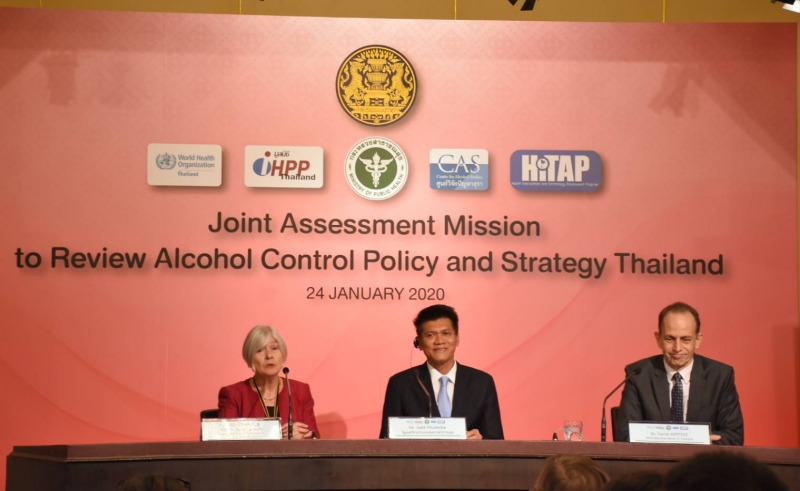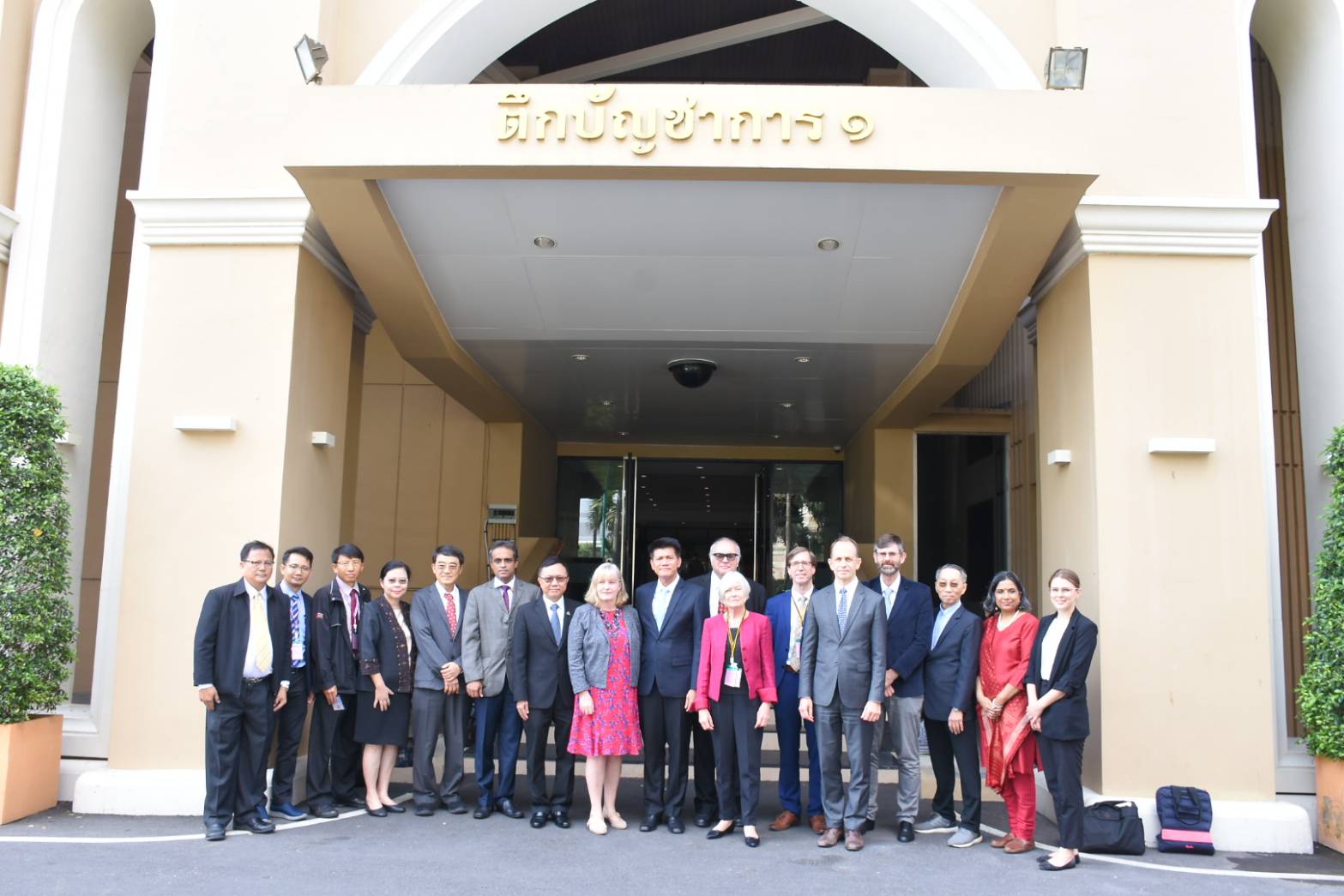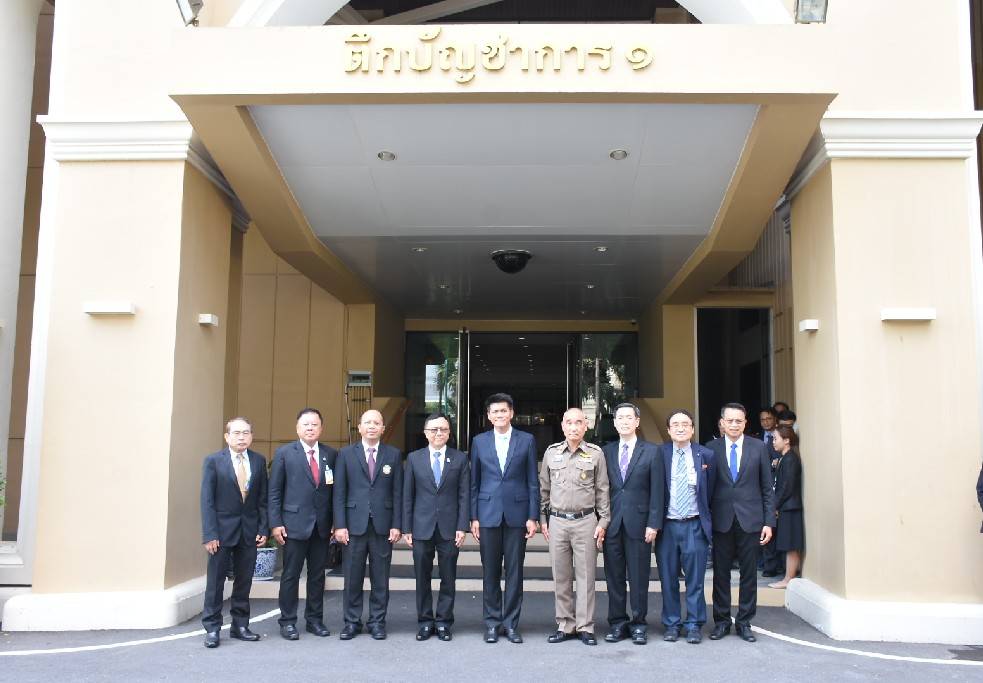สธ.เขต 7 วางนโยบายแก้ปัญหา รพ.ขอนแก่นขาดสภาพคล่อง เน้นใช้งบคุ้มค่า บริการดี ระบบโปร่งใส คาด 3-6 เดือนการเงินดีขึ้น
- สำนักสารนิเทศ
- 303 View
- อ่านต่อ

The Deputy Minister of Public Health stated that an international alcohol control assessment team commended Thailand’s alcohol control measures as a role model for Asia.
Today (24 January 2020)at Government House, Dr. Satit Pitutecha, Deputy Minister of Public Health, accompanied by high-level executives and the National Alcohol Policy Committee, attended the presentation of policy recommendations pertaining to alcohol control by an international assessment team which consisted of experts from 6 countries, Thailand's national-level experts, representatives of the World Health Organization, representatives of the United Nations, and academics in related fields. The assessment was conducted from 20 to 24 January 2020, with visits to 3 Provinces - Chiang Mai and Songkhla Provinces and Bangkok - to observe the local contexts. The assessment was made as part of Thailand’s Joint Assessment Mission to Review Alcohol Control Policy and Strategy initiative, with the goal to review the outcomes of alcohol control policy from 2008 to present.
Dr. Pitutecha stated that the world-class assessment team, led by Professor Dr. Sally Casswell, the Head of the Assessment Team, commended Thailand’s alcohol control efforts and noted Thailand’s outstanding achievements in many areas during the last decade, and stated that Thailand could serve as a role model for Asian countries. With regard to recommendations from the Assessment Team, there are measures that Thailand has implemented and will increase its intensity, such as participation of local communities and strict enforcement of relevant legal measures, e.g., prohibition of alcohol sale to individuals aged less than 20 years, reduction of number and density of alcohol outlets, the ban on all forms of alcohol advertisement, particularly via digital media, and prioritization of participation of local communities in promoting legal compliance and creating models for festivals that are alcohol-free. On the part of the Ministry of Public Health, the system for management of alcohol use disorder will be organized to be more accessible to the public. The Assessment Team have also met with officials from relevant agencies, such as the Ministry of Interior, the Royal Thai Police, and the Excise Department. The findings and suggestions presented by the Assessment Team will be conveyed to the meeting of the National Alcohol Policy Committee to adapt and enable Thailand's alcohol control to be more efficient.
Mr. Daniel Kertesz, WHO Representative to Thailand, stated that reduction of alcohol-related problems will help Thailand to achieve Sustainable Development Goals in a more expedient manner. The commitment and leadership in alcohol control of the Royal Thai Government should be undertaken in a consistent and robust manner. It is with sincere hope that Thailand will continue this leading role in mobilization of alcohol control measures at the regional and global levels.
Professor Dr. Sally Casswell, the Head of the Assessment Team, praised Thailand for its outstanding achievements during the last decade and stated that Thailand could serve as a role model for Asian countries. Thailand has a good legal infrastructure with a strong network of partners and has been able to control the increase in alcohol consumption amidst strong motivating factors. However, Thailand still needs greater participation and strict enforcement of relevant legal measures, e.g., prohibition of alcohol sale to individuals aged less than 20 years, and modification of legal measures to accommodate to ongoing changes, particularly the control of all forms of advertisement, sponsorship, and promotion of sale by the alcohol industry, particularly via digital media. Other modifications include improving the alcohol sale licensing system by increasing community participation to reduce access to alcohol among youths, and regular increase in alcohol tax that is consistent with inflation.
************************ 24 January 2020



.jpg)
*********************